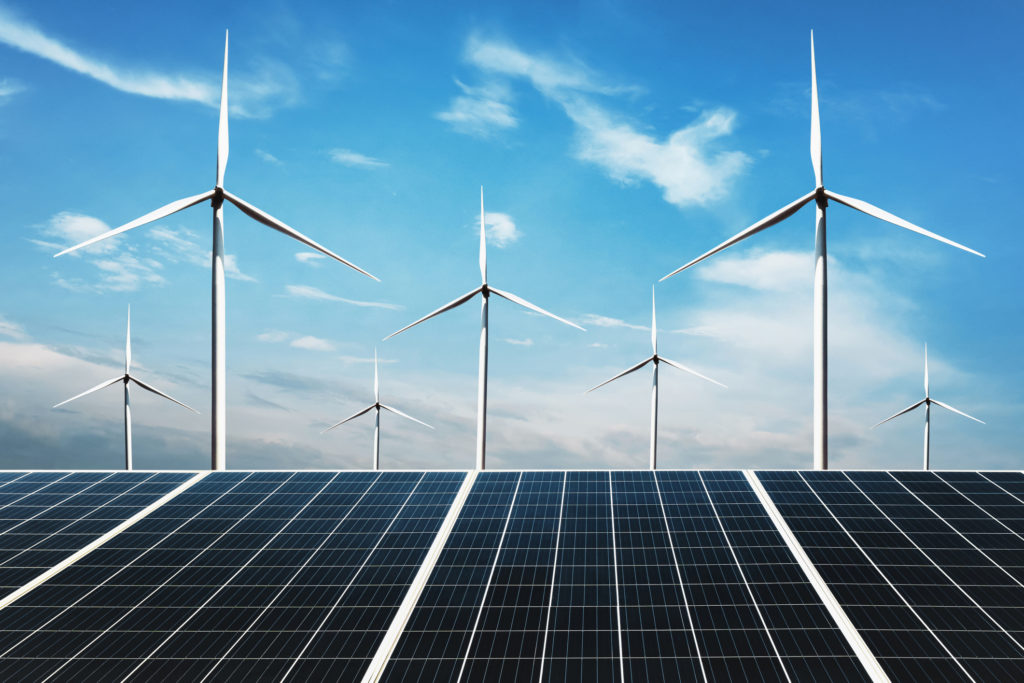
By Shane Hurst
Managing Director, Portfolio Manager,
ClearBridge Investments, part of Franklin Templeton
(Sponsor Content)
Last month, I wrote in Financial Independence Hub about infrastructure as an asset class and the opportunities it can provide for both retail and institutional investors.
I would like to follow up on this by explaining the process we use at ClearBridge Investments, and specifically the approach we take with the Franklin ClearBridge Sustainable Global Infrastructure Income strategy.
Our Global Infrastructure Income team is based In Sydney, Australia and manages funds in the U.S., U.K, Australia, Europe and Canada. Having launched in 2010, the strategy has built assets under management of US$4 billion.1
With inflation at multi-decade highs, war in Ukraine, not to mention the ongoing pandemic, risk management is front of mind for many investors. Adding infrastructure to a balanced portfolio of global equities and fixed income is designed to increase returns while decreasing risk.
Expertise in Infrastructure
Years of experience in the infrastructure space has allowed the ClearBridge team to develop the expertise required to select companies that are best placed to prosper over the long run.
With backgrounds in M&A and unlisted infrastructure, debt and equity financing, buy and sell trading, as well as government and regulation, the team constructs a portfolio of 30–60 listed companies where excess return, yield quality and risk assessment drive position sizing. Given that this is a sustainable fund, ESG integration is another crucial element, as it is for the firm overall: ClearBridge Investments was an early signatory to the UN Principles for Responsible Investment back in 2008.
Companies positioned to Succeed
In building the portfolio, the investment team scans the globe for high-quality, listed companies that are positioned to meet the strategy’s income and growth goals. Nextera Energy is one such firm. The largest renewable energy producer in the U.S., Nextera is made up of the parent company Nextera Inc., which owns a regulated utilities company in Florida, as well as Nextera Energy Partners, a yield-oriented renewables vehicle.
The firm’s renewables deployment is expected to increase by more than 50% over the next three years, so it is well placed to benefit from the move towards net-zero carbon emissions across the global economy. Nextera’s strong market position also provides competitive advantages that are driving equity returns that are well above the cost of capital, while its long-term contracts are supporting attractive dividend yield and dividend growth. As a leader in renewable energy, it’s not surprising that the company scores highly in the ‘E’ part of ESG, but it also excels in social and governance metrics too, with strong employee safety standards and excellent management and succession planning.
Decarbonization is set to be one of the major themes impacting businesses and investors in the years to come, and ClearBridge is committed to identifying the companies at the forefront of this change. Global utilities are also entering a transformative period, while many transportation assets are yet to return to their pre-pandemic peak. This will provide opportunities for investors, as will the emergence of 5G technology and the longstanding valuation divide for unlisted versus listed assets
Responding to War & Inflation
The Russia-Ukraine conflict has had different knock-on effects for the global economy. A major energy producer, Russia exported 14% of the world’s oil in 2021 and was the largest exporter of natural gas.2 Countries reliant on Russian oil and gas (particularly EU members) are looking towards renewables as an alternative over the long term, while pivoting to liquefied natural gas (LNG) from the U.S. and Qatar in the short term.
The sanctions imposed on Russia and the corresponding rise in oil and gas prices have exacerbated the high inflation brought on by the pandemic. In the view of the ClearBridge Infrastructure team, rising prices should moderate over the next 12 months, while global GDP growth will slow as the market cycle moves into its later stage. Global bond yields have risen substantially year-to-date, but the team believes this won’t be replicated in the second half of 2022.
With infrastructure, inflation usually flows through into revenues for toll roads, railways and airports, although this is offset somewhat by rising costs. The infrastructure companies that succeed in an inflationary environment are those that can manage costs best. As bottom-up active managers, the ClearBridge Infrastructure team rebalances the portfolio as the market cycle progresses. This means more exposure to User Pays assets in transportation and Energy in the early part of the cycle, then switching to more defensive regulated Utilities as GDP growth slows down.
With the IMF recently downgrading its global economic outlook for 2022 and 2023, all signs point to a period of lower growth ahead. Whether a downturn, should it occur, morphs into a severe recession is dividing opinion among economists. Either way, infrastructure is a strong long-term secular growth story that will continue to provide investment opportunities through up and down markets. It’s our job to ensure those opportunities are reflected in our portfolios, and I’m confident that will continue to be the case in the years to come.
- ClearBridge Global Infrastructure Income Composite, as of March 31, 2022
- https://www.iea.org/articles/energy-fact-sheet-why-does-russian-oil-and-gas-matter
 Shane Hurst is Managing Director, Portfolio Manager, ClearBridge Investments, part of Franklin Templeton. Shane co-manages all Global Infrastructure Strategies. He has 24 years of investment industry experience. Shane joined a predecessor organization in 2010. Previously, he was Director, Infrastructure Securities, at Hastings Funds Management as well as Portfolio Manager and Investment Analyst at Tribeca Investment Partners and Investment Analyst at AMP Capital Investors.
Shane Hurst is Managing Director, Portfolio Manager, ClearBridge Investments, part of Franklin Templeton. Shane co-manages all Global Infrastructure Strategies. He has 24 years of investment industry experience. Shane joined a predecessor organization in 2010. Previously, he was Director, Infrastructure Securities, at Hastings Funds Management as well as Portfolio Manager and Investment Analyst at Tribeca Investment Partners and Investment Analyst at AMP Capital Investors.
The Author’s comments, opinions and analyses are for informational purposes only and should not be considered individual investment advice or recommendations to invest in any security or to adopt any investment strategy. Because market and economic conditions are subject to rapid change, comments, opinions and analyses are rendered as of the date of the posting and may change without notice. The material is not intended as a complete analysis of every material fact regarding any country, region, market, industry, investment or strategy. Commissions, trailing commissions, management fees, brokerage fees and expenses may be associated with investments in mutual funds and ETFs. Please read the prospectus and fund fact/ETF facts document before investing. Mutual funds and ETFs are not guaranteed. Their values change frequently. Past performance may not be repeated. ClearBridge Investments, part of Franklin Templeton Investments Corp.

